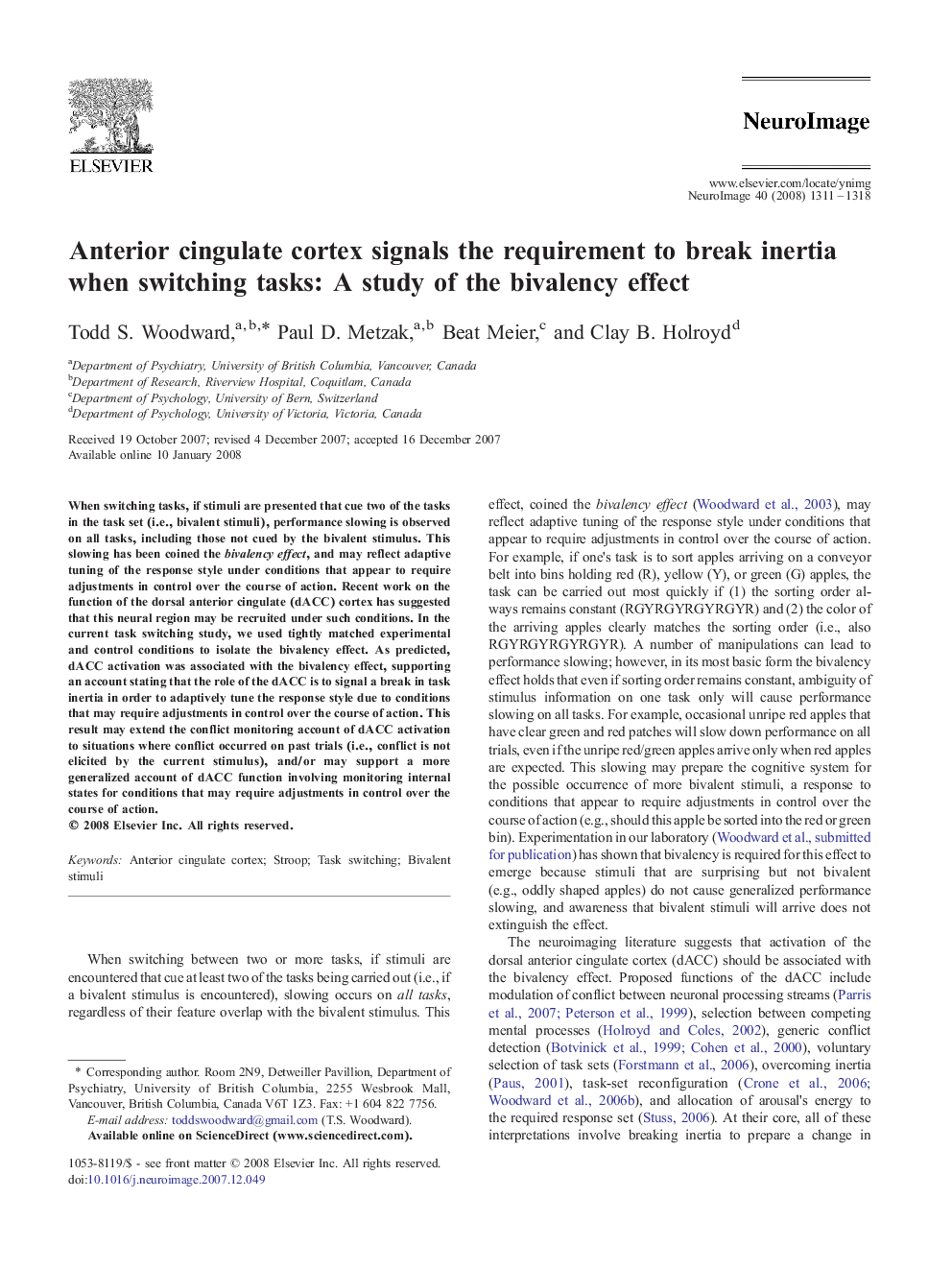| Article ID | Journal | Published Year | Pages | File Type |
|---|---|---|---|---|
| 6039707 | NeuroImage | 2008 | 8 Pages |
Abstract
When switching tasks, if stimuli are presented that cue two of the tasks in the task set (i.e., bivalent stimuli), performance slowing is observed on all tasks, including those not cued by the bivalent stimulus. This slowing has been coined the bivalency effect, and may reflect adaptive tuning of the response style under conditions that appear to require adjustments in control over the course of action. Recent work on the function of the dorsal anterior cingulate (dACC) cortex has suggested that this neural region may be recruited under such conditions. In the current task switching study, we used tightly matched experimental and control conditions to isolate the bivalency effect. As predicted, dACC activation was associated with the bivalency effect, supporting an account stating that the role of the dACC is to signal a break in task inertia in order to adaptively tune the response style due to conditions that may require adjustments in control over the course of action. This result may extend the conflict monitoring account of dACC activation to situations where conflict occurred on past trials (i.e., conflict is not elicited by the current stimulus), and/or may support a more generalized account of dACC function involving monitoring internal states for conditions that may require adjustments in control over the course of action.
Related Topics
Life Sciences
Neuroscience
Cognitive Neuroscience
Authors
Todd S. Woodward, Paul D. Metzak, Beat Meier, Clay B. Holroyd,
